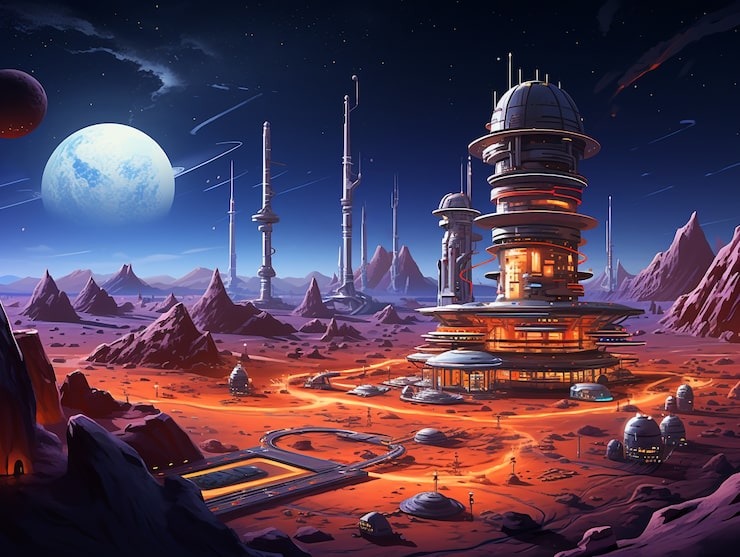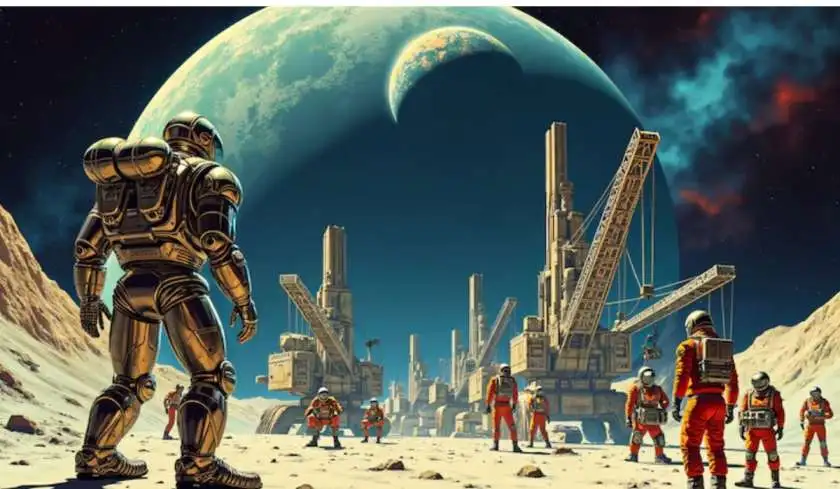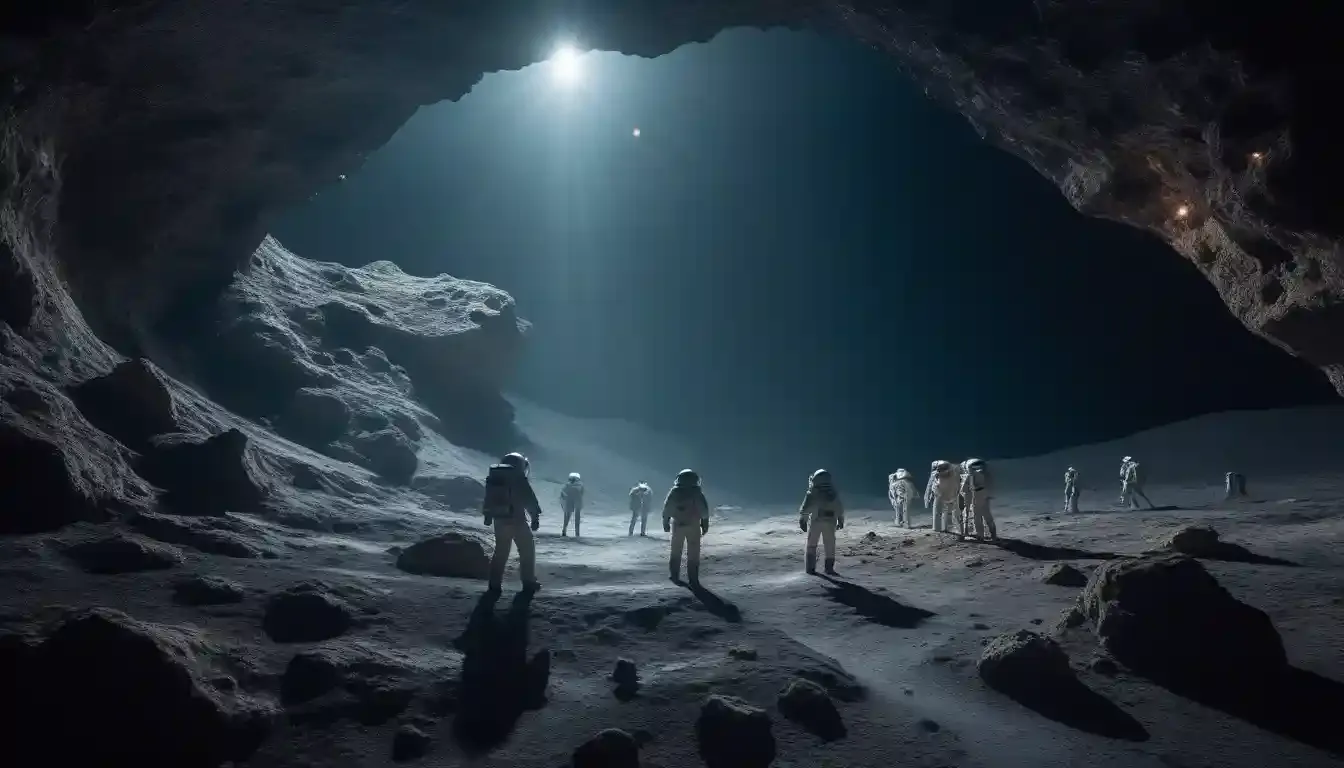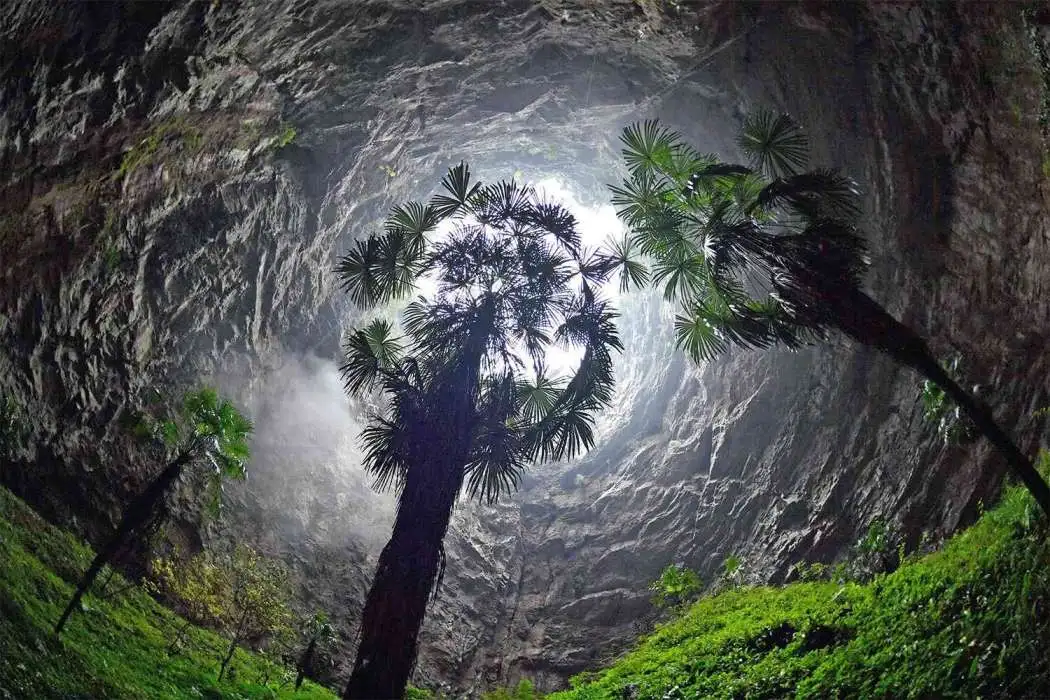Suppose you get up on your window and then you look out and see a rusty red sky. You have a lovely house and are living there under a big dome. This is a house on Mars which is millions of miles away! This has been the dream of science fiction stories over the years. However, now scientists and engineers are trying to make it a reality. It is not a crazy dream of mine any longer. It is a possible future that human beings are preparing on.
So, what would it be like? And what adventures and hardships would we have? It is time to launch up into space and see what life could be like should mankind colonize Mars.
Why Mars? The Allure of the Red Planet

You may be thinking, among all the available planets, why not another planet as the new planetary home of the humans?
The next neighbor of Mars is us. It is very distant but it is considered as one of the nearest to the earth. More crucially, it is among the most Earth -like environments that we have observed despite it being extremely different.
Consider it such: the Moon is a deserted rock which has nearly no air. Toxic clouds cover planets such as Venus which are boiling hot. But the surface of Mars is solid and rocky, and you can walk upon it. At its poles and underground, it contains water ice. It has seasons, as on earth, and a day of some little more than 24 hours. This renders it a far preferred location compared to other places in the solar system.
Most scholars such as Robert Zubrin, the President of The Mars Society cite that Mars possesses everything that can support life. These are carbon, nitrogen, and oxygen as the building blocks of air, water and even the plastic to construct the building. This implies that we might use what is already available on Mars to assist us in survival, the so-called living off the land.
You may also read :- What if the pyramids were built by an ancient advanced
What If Humans Colonized Mars? Building Our First Home
But how does one go visiting the planet Mars and then live there? The initial colonists of Mars would be pioneers in all terms of the matter. They would live a life of discovery and struggle.
Designing a Mars Colony and Habitat
The Martian houses would not be like houses on earth. In order to avoid rays that are harmful to their well-being under the sun and during cold temperatures, people would be forced to live in underground or under the dome-like strong buildings.
These domed homes might be fabricated using tough inflatable plastic. They would be a big greenhouse inside, with plants in them, and a warm and breathable atmosphere pressure. A whole neighborhood with a huge protective bubble! There would also be a requirement of special space technology to supply oxygen, recycle water, and cultivate food in hydroponic farms. All aspects of life would depend on these ingenious, life support systems.
Creating a New Society on the Red Planet
Creating a Martian Society and Culture
Mars colony would not only be a science laboratory, it would be a community. Gradually, with the arrival of more people, they would have to learn how to co-exist and co-work. This is the establishment of rules and some sort of government.
Direct democracy may be one of the possible solutions, as proposed by some leaders (such as Elon Musk) who think that on Mars, the body of every single person voting on the significant matters would be effective. This would be aimed at creating a just and fair society at the outset.
There would also be fun and creativity in life! Sporting activities such as low-gravity sports, which cannot occur on Earth, may be enjoyed by colonists. They would have holidays, both created on Earth and new ones invented on Mars. They would become a distinct community, which would be united by their common experience of creating a new world.
The Challenges: It's Not Going to Be Easy
It would be a wonderful adventure but it would also be very challenging to be living on Mars. One should be aware of the dangers and challenges.
Surviving the Martian Environment
Humans do not find Mars a friendly place. The largest survival challenges are the following:
- Thin Atmosphere and No Air to Breathe: Mars is a planet with a very thin atmosphere that is composed of carbon dioxide. We couldn't breathe it. And it would be impossible to leave the spacesuit and step outside.
- Freezing Temperatures: It is very cold on Mars with the average temperature of about -81 degrees Fahrenheit (-63 degrees Celsius ).
- Problem of Unfriendly Radiation: In the absence of thick atmosphere, as well as strong magnetic field as that of the earth, the surface of Mars is unprotected against the harmful effects of the sun and space. This puts the risk of sickness to colonists up.
- The Psychological Cost: Think about the fact that you are a million miles away and you do not see ocean or forests or families on earth. The psychological issues of isolation and confinement may be extremely challenging.
A large number of scientists, such as Kelly and Zach Weinersmith, the writers of the book A City on Mars, warn of caution. They claim that it is not as easy as it sounds to make an actual self-sustaining colony in which individuals are able to have families and live without any assistance of our planet. They insist that we should think twice before we jump that high.
The Big Question: Should We Colonize Mars?
It is a question that cannot be answered easily. On either side there are numerous solid arguments.
The Case For Colonization: A Brighter Future
A lot of individuals believe that it is our moral responsibility to colonize Mars. According to them, as a multi-planet species, we are able to guarantee long-term human survival. In case of some horrible event on the Earth, a colony on Mars may serve as a backup to the human race.
It would also contribute immensely towards new technology and inventions. Living on Mars would compel us to design incredible novel recycling methods, cultivate sustenance, and generate vitality which can be useful in correcting issues on Earth as well.
A Warning on Colonization: The Case
Some other people claim that we ought to resolve issues affecting our planet such as climate change and poverty first before spending colossal sums of money on Mars .
There exist also large moral questions. Should we modify the environment of another world (the process is known as terraforming)? Should we potentially damage any microbial life that may be found on Mars? We should also ensure that space exploration is done amicably and in a peaceful manner in line with international laws.
Conclusion: The Dream Continues
One of the most exciting and daring ideas of our future is the idea of humans colonizing Mars. It inspires our imagination and makes us strive to do great things. Although the obstacles to overcome are gigantic, the possible rewards, such as a scientific breakthrough, the emergence of new technology, and a better future of humanity, are as gigantic as well.
The trip to Mars is not going to be fast. It is going to take our utmost creativity, boldness, and collaboration. Fresh world Mars is a new world with the potential to become a home of new branch of human civilization as author Robert Zubrin reminds us. Not only can we do it, but how will we do it right is the question.
Frequently Asked Questions
1. Can we breathe the air on Mars?
No, you cannot breath the air on Mars. Martian air is very thin and consists of carbon dioxide that is harmful to humans. The colonists would have to wear spacesuits and live in closed environments where the air was produced artificially.
2. What is the time travel to Mars?
It will take 6 or 9 months to go to Mars using our existing technology. This happens at the moment when the Earth and Mars are in their orbits around the Sun.
3. Does Mars have water?
Yes! On Mars, there is water, but it is all frozen in the form of ice. The poles and the soil (permafrost) contain ice. It is one of the primary objectives of any future mission to find and use this water.
4. What would children have to do in Mars to have fun?
A blend of earth and Martian would be the fun of Kids on Mars! They may also engage in light-weight games such as basketball where one can jump very high. They might be inclined to plant in the greenhouse, do field trips in virtual reality and even possibly have snowball fights on Mars (with frozen carbon dioxide!).
5. What are the opinions of the experts concerning living on Mars?
The professionals disagree. One of the advocates is Elon Musk of SpaceX who wants to create a city with a million people on Mars. Other such authorities, such as the Weinersmiths, are more cautious, highlighting the huge medical, environmental and legal hurdles which we have yet to fully overcome.










